|
|
EFMC ANNOUNCES THE CREATION OF THE EFMC-WUXI APPTEC AWARD FOR EXCELLENCE IN CHEMICAL BIOLOGY
The "EFMC-WuXi AppTec Award for Excellence in Chemical Biology" will recognise outstanding research in the field of chemical biology as defined by EFMC in The Chemical Biology-Medicinal Chemistry Continuum: EFMC’s Vision, ChemBioChem 2021, 22, 2823– 2825.
The Award will be given biennially and will consist of a diploma, € 7.500, and an invitation to present a lecture at an EFMC-ISCB symposium.
The award shall be open to any scientist whose career does not exceed 20 years after PhD on January 1st of the year during which the award is to be presented, and whose accomplishments have not yet been honoured by other EFMC awards.
The award will be conferred on the occasion of the European Federation for Medicinal chemistry and Chemical Biology International Symposium on Chemical Biology (EFMC-ISCB).The EFMC-ISCB 2023 will be held in Basel, Switzerland on November 16-18, 2023.
Deadline for submission: January 31, 2023
More information on The EFMC-WuXi AppTec Award for Excellence in Chemical Biology.
EFMC PRIZES 2023 – CALL FOR NOMINATION
To acknowledge and recognise outstanding young medicinal chemists and chemical biologists (≤ 12 years after PhD) working in European industry and academia, the EFMC established the "EFMC Prize for a Young Medicinal Chemist or Chemical Biologist in Industry" and the "EFMC Prize for a Young Medicinal Chemist or Chemical Biologist in Academia".
These two prizes are given annually and consist of a diploma, 1.000€ and an invitation for a short presentation at an EFMC symposium.
For the 2023 edition, the prize-winners will be invited to give an oral communications at the IX EFMC International Symposium on Advances in Synthetic and Medicinal Chemistry (EFMC-ASMC 2023), scheduled to take place in Zagreb, Croatia on September 3-7, 2023. Two additional nominees will also be identified and acknowledged as most meritorious runners-up.
Deadline for nominations is January 31, 2023.
EFMC Prize for a Young Medicinal Chemist or Chemical Biologist in Industry
Nominations should be written by the candidate’s supervisor and consist of:
- a letter by the supervisor.
- a brief candidate CV.
- an abstract of the potential oral presentation.
EFMC Prize for a Young Medicinal Chemist or Chemical Biologist in Academia
Applications should consist of:
- a one-page letter by the candidate, including a short rationale for their application.
- one page with five key publications.
- a brief candidate CV.
an abstract of the potential oral presentation. LITERATURE SPOTLIGHT
The “literature spotlight” section of the newsletter will bring you a summary of recently published research in a concise and accessible way. Multiple thematics from different journals will be highlighted thanks to the valuable contribution of members of the EFMC working groups.
This contribution will focus on the recently published article on “Overcoming Preclinical Safety Obstacles to Discover (S)-N-((1,2,3,5,6,7-Hexahydro-s-indacen-4-yl)carbamoyl)-6-(methylamino)-6,7-dihydro-5H-pyrazolo[5,1-b][1,3]oxazine-3-sulfonamide (GDC-2394): A Potent and Selective NLRP3 Inhibitor” by McBride C et al., published in J. Med. Chem.
NLRP3 inflammasome has been investigated and found to be a key mediator of inflammation, associated with sterile proinflammatory signals in a wide range of acute and chronic human diseases e.g., Alzheimer’s, atherosclerosis, cryopyrin-associated periodic syndromes, gout, cardiovascular disease, type II diabetes and nonalcoholic steatohepatitis. Blocking activation of this pathway can potentially provide a broad therapeutic approach toward treatings these types of inflammatory diseases.
The first inhibitor of NLRP3 (MCC950/CRID3/CP-456773) was discovered in 1998 by Pfizer via a phenotypic screen and was advanced into a Phase II clinical trial for rheumatoid arthritis. While a specific cause for the off-target findings in the liver was never divulged, drugs with a high total daily dose (≥100 mg/day) and high lipophilicity (LogP ≥ 3) typically have an increased risk for causing drug-induced liver injury (DILI). Despite the absence of information on the off-target hepatotoxicity that was observed with compound MCC950/CRID3/CP-456773, scientists at Genentech developed a clinical candidate with reduced lipophilicity and improved potency to reduce the total dose. To do so, they used LLE as a central metric to guide their early medicinal chemistry efforts toward identifying a novel series of NLRP3 inhibitors. After an extensive medicinal chemistry optimisation campaign, they were able to identify a series of 6,7-dihydro-5H-pyrazolo[5,1-b][1,3]oxazine-3-sulfonylurea NLRP3 inhibitors which led them to the discovery of GDC-2394 as a lead compound with significantly reduced lipophilicity when compared to the Pfizer compound. The improved HWB potency, solubility, and oral bioavailability profiles of the Genentech lead compound contributed toward lowering the predicted human dose and therefore exhibits strong advantages over previously reported NLRP3 inflammasome assembly inhibitors. The dose prediction for Pfizer compound was 850 mg QD (covering IC50), whereas GDC-2394 had a predicted dose of 500 mg QD (covering IC50).
Read the article. THE EFMC-YSN WELCOMES A NEW BOARD MEMBER – MEET SEAN MCKENNA
Sean McKenna is a PhD student in Chemical Biology at Trinity College Dublin, working under the supervision of Professor Joanna McGouran. He earned his MedChem undergraduate degree at the University of York, before moving into industry as a medicinal chemist with Vernalis Research.
Sean returned to academia in 2020, pursuing his PhD in the design and synthesis of novel probes for deubiquitinating enzymes. Beyond his contributions to his home institutions, Sean has collaborated as a visiting researcher with the groups of Professor Guofu Zhong at Nanyang Technological University and Professor Sander van Kasteren at Leiden University.
In 2022, he joined the board of the Young Scientist Network with the aim of supporting and promoting high-quality EFMC events for early career researchers.
Want to meet the rest of the Board? Have a look at EFMC Communication Team.
EFMC ADVENT CALENDAR – CALL FOR PICTURES
The EFMC Communication Team is actively preparing for the Holiday Season and invites you all to contribute to its Social Media Advent Calendar.
Please share the most festive picture from your lab with us and get showcased on the EFMC Twitter or Instagram account. The most-liked picture by December 24th noon CET will win a 25€ prize and an EFMC GoodieBox.
How to participate?
- Share your picture by PM via Twitter, or
- Tag us from a public account on Twitter (@EuroMedChem) or Instagram (@euromedchem), or
- Share your picture and details via email to communication@efmc.info
BEST PRACTICES IN PHENOTYPIC DRUG DISCOVERY (PDD)
Recent years have seen a renaissance of Phenotypic Drug Discovery (PPD) with novel screening technologies and a track record that is thought to match or surpass that of target-centric approaches. We present a view on best practices to consider when running phenotypic drug discovery campaigns to increase the chance of success of these black box approaches.
If you missed the excellent webinars and slide decks by the EFMC Best Practices working group, you can still access them on https://www.efmc.info/phenotypic-drug-discovery.
GET TO KNOW ROB YOUNG, BLUE BURGUNDY (DRUG DISCOVERY CONSULTING), UNITED KINGDOM
In this edition, our #Iamamedicinalchemist is Rob Young from Blue Burgundy, United Kingdom.
Get to know him better by reading our interview below.
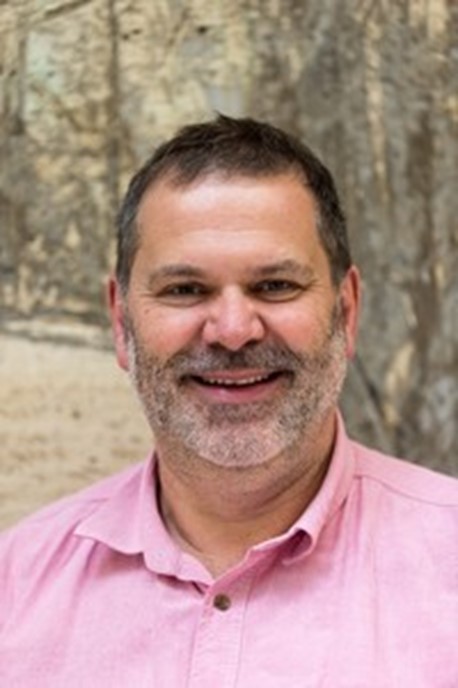
How did you get interested in Medicinal Chemistry?
A wonderful schoolteacher, Pete Brown, inspired me into chemsitry (and also developed my love of natural history) so a progression into organic chemsitry and the understanding and modulation of natural processes was a logical progression.
Where and when did you obtain your PhD diploma?
University of Oxford, 1988, with Dr George Fleet after a year with Prof. Jack Baldwin.
What was the topic of your PhD project?
Studies in the Chemistry of Glutarimides and Synthetic Entry to N(5)-Ergolines
Where did you have your postdoc position?
Ben May Institute, University of Chicago, with Prof. Ron Harvey
Where are you currently working and what is your current position?
I am currently “semi-retired” but run my own consultancy business, working with Pharma companies and CROs of all shapes and sizes; advising, involved with projects, teaching, training... and undertaking some expert witness work.
Previously, 30 years with Wellcome/GlaxoWellcome/GSK.
What are your current research interests?
Outside of my consultancy roles, I’m reading and writing about the influence of nature on drug action and disposition, considering evolutionary recognition and its importance in synthetic origins, transporter, and receptor recognition. And my interest in property-based design and understanding the key concepts in the drug discovery journey continues.
How would you explain what your research area is to non-scientists?
I often describe organic synthesis as cookery in its purest form, drug discovery as making highly decorated bespoke cupcakes – yet to be a successful drug these cupcakes would need to be mass produced in their thousands (and more). I love cooking – and question the practical skills of any medicinal chemist who says they can’t cook!
What do you like best about your work?
The variety of interactions I have and the ability to set my own agenda! I also enjoy sharing my knowledge and enthusiasm through teaching and mentoring.
What do you consider your greatest achievement in your scientific career?
Surviving into my 30th year within one organisation, despite many mergers, acquisitions, and reorganisations - always staying true to my science principles, whilst constantly learning and adapting to new challenges.
Which of your papers are you most proud of and why?
A difficult question – much to choose from in property-based design, mapping progress and key compounds... But I’ll plump for “Practical purification of hydrophilic fragments and lead/drug-like molecules by reverse phase flash chromatography: tips, tricks and contemporary developments.” This neat collection paid tribute to Andy who, despite no chemistry qualifications, became an adept and hugely impactful member of our group developing logical and quantitative methods that established best practice, improving purification efficiency and productivity. Drug Discov Today 2013, 18, 148-154,
What are the features of a successful PhD student or postdoc?
Training in the skills and techniques of synthesis and learning to think for yourself, be curious and develop independence through creativity and knowledge. Learning to work across boundaries and disciplines.
What advice would you give to someone who wants to know more about your field?
Be curious, read, listen (plenty of in-line resources these days) and consider finding a mentor. The diversity of skills in medicinal chemsitry are best honed by experience; follow principles, expect surprises, and understand that “rules are for the obedience of fools and guidance of the wise.”
What would you like to ask from other medicinal chemists?
Be creative, but focussed, in your approach. Keep an eye on properties and aromatic ring count, monitor progress and learn when to call a timely halt to series/programmes that have issues.
Have you experienced any unfair situations during your scientific career? How would you advise scientists facing similar situations?
The world has changed a lot since I started my chemical career – and, sadly, I experienced examples of discrimination over the years. My advice is to seek help and consult codes of practice; gather evidence, speak up.
What is the most embarrassing thing you have done in the lab while doing experiments?
Spilling 100 ml of HF that caused a lab evacuation during my post-doc.
What are your recommendations for a book, podcast, website, blog, YouTube channel or film?
- Book: The Medicinal Chemist’s Guide to solving ADMET Challenges.
- Website: Chris Swain’s excellent resources at https://www.cambridgemedchemconsulting.com/resources/
- Blog: Practical Fragments, various posts on LinkedIn
- Podcast: The Scouse Science podcast
- Film: Mondovino. Enjoying good wine is one of my great pleasures and I draw parallels between good drug discovery and the artistic nature of great small wine producers versus the harmonised “globalisation” approach driven by numbers and volume.
Which scientist do you admire the most and why?
Trudy Elion – one of the greatest drug hunters of all time (in her partnership with George Hitchens), whilst being the most modest, humble, and empowering of people with great generosity. A pioneering mould breaker and true innovator, I had the great fortune to spend time with her in my Wellcome days.
Which field of medicinal chemistry do you consider the most promising for the future?
Finding ways of working with nature to modulate the immune system; carbohydrates are likely to have a key role in this.
What would you expect to be the next major breakthrough in medicinal chemistry?
The ability to be confident of the outcome when making molecules you want to make rather than those you can make easily from a limited toolbox – incorporating better harmonisation with natural structures and processes. EFMC SPONSORED EVENT REPORT: 23rd EUROPEAN SYMPOSIUM ON QUANTITATIVE STRUCTURE-ACTIVITY RELATIONSHIP (EuroQSAR)
The 23rd EuroQSAR Symposium, focusing on “Integrative Data-Intensive Approaches to Drug Design” took place at Heidelberg University, Germany from 26 to 30 September. The conference was chaired by HITS group leader Rebecca Wade and has been attended by ~300 participants from both academia and industry.
The EuroQSAR symposia have been taking place at different locations in Europe at roughly twoyear intervals since 1973 to promote, disseminate, and discuss advances in drug design by computer-aided methods. They constitute major scientific events in the field of computational drug design, with further applications in agricultural and environmental sciences. The symposium included 12 plenary lectures, 16 session lectures, 11 oral communications, several workshops, poster presentations and a commercial exhibition.
“After postponement due to the Coronavirus pandemic, we were happy to host the 23rd EuroQSAR as a face-to-face meeting in Heidelberg”, says Rebecca Wade, group leader at the Heidelberg Institute for Theoretical Studies (HITS) and professor at Heidelberg University, who chaired the symposium.
The EuroQSAR symposia are organised on behalf of QCMS – the QSAR, chemoinformatics and modeling society (https://www.qsar.org/). QCMS is an international society open to scientists involved in Quantitative Structure-Activity Relationships (QSAR), cheminformatics, and modeling for medicinal, agricultural, or environmental chemistry. It tackled topics like artificial intelligence in drug design, modeling drug safety, network medicine or pharmacological issues.
Part of the program were the presentation of the Corwin Hansch and Toshio Fujita Awards 2020 & 2022, named after two pioneers in the QSAR field. These awards are given to younger investigators (Hansch Award) and more senior investigators (Fujita Award) as recognition in the field of cheminformatics and Quantitative Structure-Activity Relationships (QSAR) research.
Due to the postponement of EuroQSAR 2020, the 2020 awardees were also invited to give their talk during EuroQSAR 2022.
2020 awardees:
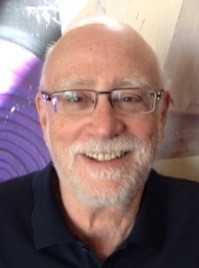 |
Fujita Award Lecture
Prof. Gerald M. MAGGIORA (UNIVERSITY OF ARIZONA, Tucson, United States)
Due to health issues preventing Prof. Maggiora to travel, Prof. Vogt standed in for him.
« Set-Theoretic Analysis of Ligand-Target Datasets - An Intuitionistic Fuzzy Set Approach » |
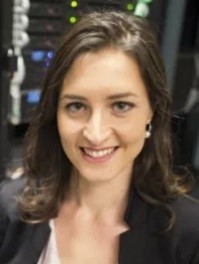 |
Hansch Award Lecture
Dr Giulia PALERMO (UNIVERSITY OF CALIFORNIA RIVERSIDE, Riverside, United States)
« Multi-scaling the CRISPR-Cas Revolution from Gene Editing to Viral Detection » |
2022 awardees:
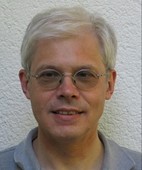 |
Fujita Award Lecture
Prof. Gerhard KLEBE (Philipps-University Marburg, DE)
“Consulting the Experiment: Are our Currently Applied Computational Drug-Design Tools Comprehensive Enough” |
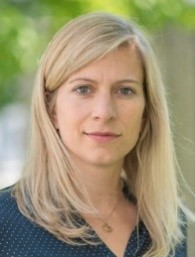 |
Hansch Award Lecture
Prof. Andrea VOLKAMER (Saarland University, Saarbrücken, DE)
“Data-Driven Methods for Active Compound Design and Risk Assessment” |
Several Oral Communications and Poster prizes sponsored by RSC, Springer and Wiley have been attributed during the closing of the conference.
The event was supported by the DFG (German Research Foundation), HITS, and Heidelberg University, is an EFMC (European Federation for Medicinal Chemistry and Chemical Biology) sponsored event and is sponsored by the Interdisciplinary Center for Scientific Computing (IWR) at Heidelberg University, Novartis, and other institutions, companies and publishers.
More information on the program: https://www.euroqsar2022.org/programme
EuroQSAR will take place in Barcelona in 2024, for the 24th edition to be chaired by Dr Jordi Mestres (IMIM Hospital del Mar Medical Research Institute, Barcelona, Spain). NEWS FROM THE FRENCH MEDICINAL CHEMISTRY SOCIETY/SOCIÉTÉ DE CHIMIE THÉRAPEUTIQUE (SCT)
Following its tradition to acknowledge the contribution of mid-career scientists, the SCT will continue to award a Young Investigator in Medicinal Chemistry. There will be two Young investigator in medicinal chemistry Prizes, one for investigator in academia, and one for investigator in industry.
Application deadline: 15th November, 2022 midnight (Paris Time)
• SCT Award for Young academic investigator in medicinal chemistry
-> Click here for guidelines for application
• SCT Award for Young industrial investigator in medicinal chemistry
-> Click here for guidelines for application
Do not hesitate to apply or forward to interested parties.
#MedChemCASES - SEMINAR BY THE DIVISION OF MEDICINAL CHEMISTRY OF THE GERMAN CHEMICAL SOCIETY (GDCH)
The MedChem Division of the German Chemical Society (GDCh) would like to invite you to the next #MedChemCASES online seminar which will be held on November 22 by Dr Stefan Gradl (Bayer AG).
The topic of the webinar will be “Discovery and structure activity relationships of BAY 2666605: PDE3A-SLFN12 complex inducer for cancer therapy”
Velcrin compounds are small molecules which act as molecular glues to form a PDE3A-SLFN12 complex. This complex formation induces apoptosis in cancer cells expressing elevated levels of PDE3A and SLFN12 (de Waal et al., Nat Chem Biol 2016; Wu et al., J Bio Chem 2020). Unlike traditional targeted therapies that leverage dependencies created by genomic alterations in cancer cells, velcrins instead kill cancer cells by a gain-of-function mechanism dependent on stimulation of SLFN12 RNase activity by complex formation with PDE3A (Garvie et al., Nat Commun 2021).
Based on in-vivo tool compounds which were discovered by hit-to-lead optimization from a phenotypic screen (Lewis et al., ACS Med Chem Lett 2019), the team set out to optimize the properties of the tool compounds. While already showing excellent potency and in-vivo efficacy in various tumor models, the compounds were only approximately tenfold selective against PDE3A when compared to their cell killing activity. PDE3A/B activity most notably influences cardiohemodynamics and inhibition of PDE3A/B was to be reduced to generate a larger safety window. Co-crystallization of analogs with PDE3A showed the binding mode of the velcrin class and changes in the solvent exposed region of the PDE3A binders led to steep activity changes in complex formation and cell killing. Careful optimization of the ratio of cell killing to PDE3A activity while optimizing DMPK and safety pharmacology led to the discovery of BAY 2666605.
BAY 2666605 has recently entered a First-in-Human study (NCT04809805) in patients with advanced solid tumors that co-express PDE3A and SLFN12, including melanoma, ovarian cancer, and sarcoma. We will discuss the discovery and structure activity relationships of BAY 2666605.
Register for free here: https://us06web.zoom.us/webinar/register/WN_0fRGIPPCQaC-RFObS8QDBg
#GDCh (MedChem Division), #NextGenMedChem
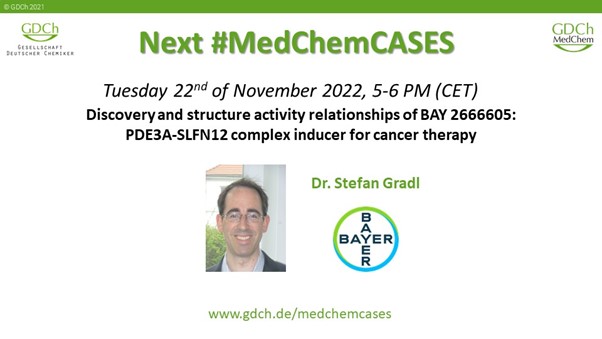
NEWS FROM THE BIOLOGICAL AND MEDICINAL CHEMISTRY SECTOR (BMCS) OF THE ROYAL SOCIETY OF CHEMISTRY (RSC)
The BMCS is delighted to announce the upcoming events.
- 7th RSC-BMCS / SCI Symposium on Ion Channels as Therapeutic Targets
- 10th SCI/RSC Kinase Symposium on Inhibitor Design
- 3rd Synthesis in Drug Discovery and Development
- 3rd RSC Anglo-Nordic Medicinal Chemistry Symposium
7th RSC-BMCS / SCI Symposium on Ion Channels as Therapeutic Targets
27th and 28th March 2023, Wellcome Genome Campus, Cambridge
Closing date for poster abstracts is 31st December
Website: https://www.rscbmcs.org/ionchannels23
Synopsis: Ion channels are important targets for therapeutic intervention due to their extensive roles in human physiology and the pathophysiology of disease. Many successful drugs targeting this gene family have been discovered for diseases such as hypertension, epilepsy and neuropathic pain.
This symposium, the 7th in an ongoing series, will showcase the most recent advances to aid the design of new ion channel therapeutics and promote interaction between scientists with a shared interest in the field of ion channel drug discovery.
10th SCI/RSC Kinase Symposium on Inhibitor Design
9thand 10th May 2023, SCI, London, UK
Abstract submissions are now open!
Website: https://www.rscbmcs.org/events/kinase/
Synopsis: With more than 70 FDA-approved small molecules, the field of kinase inhibition continues to attract significant investment from the drug discovery and development community. The 10th SCI/RSC symposium on kinases will encompass plenary lectures on emergent topics and case studies of ongoing programmes as well as successful past programmes. A range of topics including new screening approaches, brain penetrant kinase inhibitors, induced protein degradation, allosteric inhibitors and kinase inhibition for immuno-oncology will be covered, along with views and perspectives on the future of kinase inhibitor research
3rd Synthesis in Drug Discovery and Development
23rd – 24th May 2023, Virtual
Abstract closing dates are 7th December, 2022 (oral) and 22nd February, 2023 (poster)
Website: https://www.rscbmcs.org/events/sddd23/
Synopsis: Synthesis is at the heart of drug discovery and development. The industry has increasingly demanded higher quality clinical candidates and has sought to exploit less druggable biological targets. Densely functionalised small molecules with a high degree of synthetic complexity are often the result of these demands. Successful programmes therefore require the application of innovative synthesis in all stages of discovery and development. The medicinal chemist’s toolbox is also enhanced by the introduction of novel bioisosteres, often made available only through the application of new synthetic methods. This symposium aimed to celebrate the crucial role of synthesis in the success of drug discovery and development.
3rd RSC Anglo-Nordic Medicinal Chemistry Symposium
13th-16th June 2023, Hotel Comwell Borupgaard, Snekkersten, Denmark
The call for abstracts will close on 31st January 2023 (oral) and 4th May 2023 (poster)
Website: https://www.rscbmcs.org/events/anmc/
Synopsis: Organised with Nordic affiliations, the scientific programme will feature themed lectures, focusing on medicinal chemistry and related technologies and disciplines across a range of drug targets and modalities. A distinguishing feature of this symposium is the collegiate style which encourages an atmosphere of information sharing and learning THIS NEWSLETTER IS KINDLY SPONSORED BY
|
|
|
|
|
|
ISSUE SPONSORED BY

Symeres is the leading transatlantic Contract Research Organization for your drug discovery and development needs. Our services span from early stage hit finding through multiparameter medicinal chemistry, leveraging our in-house Admescope ADME-Tox platform, to the delivery of your early clinical drug substance API. We Make Molecules Matter. Together.
EFMC ORGANISED EVENTS
April 23-26, 2023
Oegstgeest, The Netherlands
17th EFMC Short Course on Medicinal Chemistry
June 10-13, 2023
Boston, United States
ACSMEDI-EFMC Medicinal Chemistry Frontiers
September 3-7, 2023
Zagreb, Croatia
IX International Symposium on Advances in Synthetic and Medicinal Chemistry (EFMC-ASMC)
September 7-8, 2023
Zagreb, Croatia
10th EFMC Young Medicinal Chemists' Symposium (EFMC-YMCS)
November 16-18, 2023
Basel, Switzerland
EFMC International Symposium on Chemical Biology (EFMC-ISCB)
EFMC SPONSORED EVENTS
November 23-26, 2022
Virtual Event
12th Joint Meeting on Medicinal Chemistry 2022
June 13-16, 2023
Snekkersten, Denmark
3rd RSC BMCS Anglo-Nordic MedChem
July 5-7, 2023
Lille, France
57th International Conference on Medicinal Chemistry (RICT 2023)
JOB PORTAL
Postdoctoral Research Fellow, The University of British Columbia, Vancouver, CANADA
Read more
Lab Technician - Compound Management , Cistim Leuven vzw, Leuven, BELGIUM
Read more
Research Scientist - Organic / Medicinal Chemistry in Virology, Cistim Leuven vzw, Leuven, BELGIUM
Read more
Postdoc in Chemical Biology, University of Geneva, Geneva, SWITZERLAND
Read more
Various jobs opportunities, Sygnature Discovery, UNITED KINGDOM
Read more
|
|
